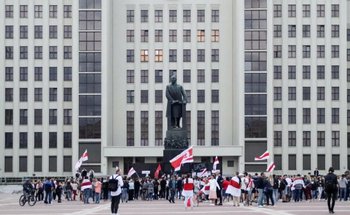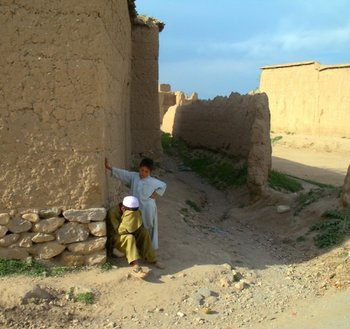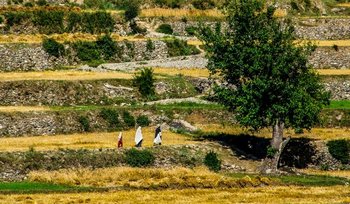ALNAP Steering Committee Chair Johan Schaar speaks to Juliet Parker about his recent paper on the humanitarian consequences of sanctions, and what those mean in the context of the current humanitarian crisis in Afghanistan.
Good morning, Johan. It’s lovely to see you!
I read your recent paper on sanctions with a lot of interest. Can you give us a summary of what sanctions are, their purpose, and some background to the current discussion around sanctions and the humanitarian system?
Sanctions have been used for centuries to force a state or community to comply with something. In terms of international law, sanctions are defined in the UN Charter, which says that if the UN Security Council finds a state to be threatening international peace and security it can impose sanctions, or the “interruption of economic relations”. Sanctions force states to comply with international law, they can act as punishment for breaking that law, and they can act as a deterrent to stop other states from doing similar things. They are basically a tool to change the behaviour of a government.
In your paper, you say that sanctions aren't always effective because they don't necessarily lead to the changes in behaviour and policy that they're aiming to achieve. Can you share a recent example of that from your experience?
There are many examples. Take the sanctions against North Korea for nuclear proliferation, we have not seen any change in the behaviour of North Korea in that respect. In Syria, we have a whole set of sanctions from the EU and from the US, but I don’t think anyone would say these have led to a change of behaviour. The US has been sanctioning Cuba since 1961 – that’s 60 years – but clearly Cuba has not changed its behaviour in the way that the US would like to see.
Sanctions were recently imposed on Belarus after the 2020 elections, and the violent government repression against the opposition and civilians who demonstrated, but we have seen no change in the behaviour of Belarus, rather the opposite. What we find is that human rights violations and repression actually increase in countries under sanctions, rather than the opposite.

Sanctions were recently imposed on Belarus after the 2020 elections... but we have seen no change in the behaviour of Belarus, rather the opposite. Photo credit: Flickr/Jana Shnipelson
Out of interest, are there positive cases where sanctions have been used effectively?
There are probably those that claim the sanctions regime against Iran, which were part of a clear political and diplomatic strategy linked to the Joint Comprehensive Plan of Action (JCPOA) agreement to stop Iran from building a nuclear weapon, did lead to Iran complying with what was stated in the agreement. That is, until the US and the Trump administration broke the agreement. After that, Iran’s compliance has been less.
Of course, it can be difficult to know if what happens in a state in terms of a deteriorating humanitarian situation is the outcome of sanctions, if it’s because of the regime, or if it’s happening at all – it can be very difficult to collect data on North Korea, for example.
Afghanistan is in the news a lot at the moment, with several stories and analysis flagging that US-led sanctions are worsening the humanitarian crisis in the country following the Taliban take over this summer. How do you see the implications of sanctions playing out in Afghanistan, and what are some of the unintended effects that we might be seeing?
Afghanistan is an interesting example of states using what is called smart sanctions or targeted sanctions. Rather than broad trade sanctions against the country of Afghanistan, targeted sanctions against individual, leading members of the Taliban have been in place since the 1980s, and were reinforced after 9/11. It was about freezing Taliban assets, and making it impossible for them to travel, and also an arms embargo, so when the Taliban took over, Afghanistan became a regime under sanctions.

"We see a country [Afghanistan] on the verge of famine because its social infrastructure and humanitarian operations could not continue as they did before the Taliban takeover. It's an extremely serious and manmade humanitarian crisis". Photo credit: Flickr/Sita Magnuson
Now, we are seeing an example of over compliance, or the ‘chilling effect’ of sanctions. International financial institutions, banks and suppliers are reluctant to do anything related to Afghanistan in case they are held liable under law. In addition the large volumes of development funding that have supported social sectors such as health and education were suspended. It’s very difficult to get any kind of finance into the country, so humanitarian staff were not getting paid. We see a country on the verge of famine because its social infrastructure and humanitarian operations could not continue as they did before the Taliban takeover.
That’s the irony. Efforts to use targeted sanctions for less impact on the population at large, can actually have a very similar effect as broad trade sanctions.
It's an extremely serious and manmade humanitarian crisis. Manmade in the sense that people were displaced by conflict and drought, but it's being exacerbated by the way the international community is dealing with it. That’s the irony. Efforts to use targeted sanctions for less impact on the population at large, can actually have a very similar effect as broad trade sanctions.
Are there other types of sanctions that are less likely to result in these negative impacts? Could they be considered?
If targeted sanctions remain targeted and really only have consequences for specific individuals then this kind of compliance may work. The problem is that targeted sanctions can result in secondary sanctions, which is the over compliance I talked about before.
For humanitarian organisations, it can become impossible to transfer the funds needed into a country to run their operations, make local purchases and pay national staff. There are examples of humanitarian organisations having to travel into countries under sanction with thousands of dollars in cash. The risk involved in that is completely unacceptable.
You mentioned a few examples where sanctions have been in place for extended periods of time. How easy is it for governments to lift sanctions once they're in place?
In practice, it’s extremely difficult to change or lift a sanctions regime once it has been imposed, for the obvious and simple reason that it will be seen as a victory for the country under sanctions – a victory over major powers and the international community. Lifting sanctions can happen when there is a toppling of the government, for example. The sanctions that Sudan had been under for many years have been partly lifted after the revolution in 2019, but now we have a military coup and it seems that some countries are again considering forcible measures against that. So yes, they are difficult to lift.
When deciding on sanctions, to what extent do governments consider humanitarian situations? It is written into law, as you say, but in practice do the humanitarian realities push sanctions to be lifted or changed?
States under UN sanctions are continuously on the agenda of the Security Council, so there are repeated sessions when the burden on the civilian population will be reported on, making Council members very aware of the situation. Efforts have been made: there have been repeated proposals for a ‘pre-assessment of potential risks’ before sanctions are imposed, to have careful monitoring of the sanctions regime and allowing changes if needed. But these have not led to fundamental change in how sanctions function or what the results of sanctions are.
You have the permanent members of the Security Council and then you have the non-permanent members who pursue these issues only for limited time – the two years of their tenure – then they leave and another set of states may raise the same issues. There is no fundamental change, no institutional reform, no UN body assigned to monitor the effects of sanctions. It becomes even more difficult when you have multiple sanction regimes at the same time. You may have Security Council UN sanctions, EU sanctions, unilateral sanctions by the US, then you have the combined effects of these – which no one has overall responsibility for monitoring the impact of. It’s extremely difficult to introduce reform or changes in how sanction regimes function.
You may have Security Council UN sanctions, EU sanctions, unilateral sanctions by the US, then you have the combined effects of these – which no one has overall responsibility for monitoring the impact of.
You mentioned that many organisations working in Afghanistan are dealing with escalating levels of humanitarian need, yet the operational context is becoming even more difficult. How do you see the coming months playing out in Afghanistan, particularly around the issue of sanctions and humanitarian operations?
I don’t know what’s going on in government offices at this moment. We do know that many governments are extremely worried and concerned. I expect efforts are being made to find ways of dealing with this. We are now seeing footage of extremely malnourished children and when a situation has gone that far, it's almost beyond repair. So much damage has already been done by the conflict in Afghanistan, to see it being exacerbated in this way… Let’s hope that efforts are being made and we will see some change.

"So much damage has already been done by the conflict in Afghanistan, to see it being exacerbated in this way… Let’s hope that efforts are being made and we will see some change". Photo credit: Flickr/R9 Studios
Finally, what advice would you give to organisations who are currently dealing with these sanctions?
They’re trying the best they can and their advocacy means their voices are being heard. Jan Egeland, the Secretary General of the Norwegian Refugee Council, has given statements and interviews during a recent visit to Afghanistan, and there have been voices from UN agencies and the head of the World Food Programme. And they were successful in that the Security Council decided on humanitarian exemptions on 22 December. There may have been other results I don’t know about, but I haven’t seen any real change in the way this works.
We’re telling humanitarian organisations to find ways of dealing with a situation which is completely unacceptable, and where the whole system is working against them. For example, Security Council resolutions invariably state that when sanctions are imposed there must be no adverse effects on the civilian population, and that exemptions will be made for humanitarian organisations to operate. But in practice, these humanitarian organisations are required to get approval from the Security Council for everything they bring into the country – making them essentially accountable for ensuring that nothing they bring in could be used by a regime in a way that's not intended by that humanitarian organisation. In my paper, I have argued that accountability under sanction regimes should shift from the humanitarian organisations to the states imposing, that it is the responsibility of those states to ensure that these adverse effects are not imposed on a civilian population.
Thank you, Johan, for a very interesting discussion.